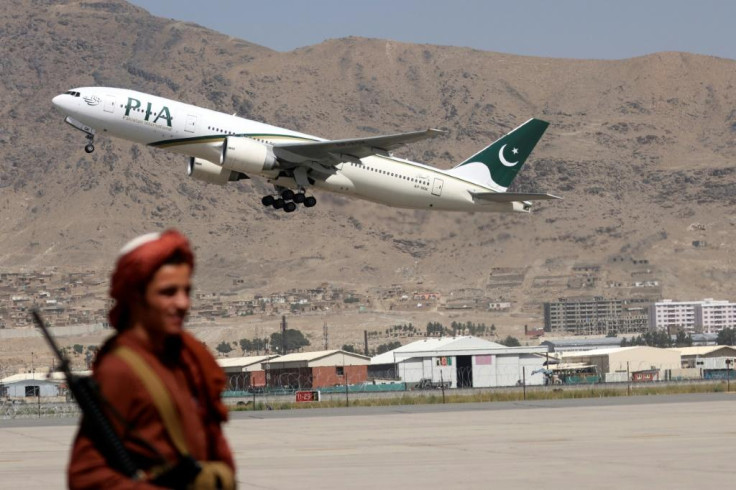Pakistan Says Afghan Asylum Seekers Must Leave By November
Afghan asylum seekers who have fled the Taliban will be deported from Pakistan by December, as tensions on the border continue to intensify.

This week, Pakistan's government declared that all unauthorised asylum seekers from Afghanistan must leave the country by November this year.
This year, Pakistani and Afghan nationals have seen a rise in tensions due to an increase in military attacks along the border of Afghanistan and Pakistan and in regions close to Kabul and Islamabad.
Last week in Mastung city, near the border that Pakistan shares with Afghanistan, a blast killed more than 50 people who were celebrating a religious festival at the time.
Pakistan's government later blamed the border attacks on Afghanistan-based operatives, but the accusation was denied by the Taliban regime.
In 2021, the Taliban named themselves as the official rulers of Afghanistan. Although the terrorist organisation is not recognised as the legitimate people in power, the Taliban have forced the nation to conform to strict Sharia laws and a strict gender apartheid system.
In Afghanistan, women are only permitted to leave the house for urgent matters, and even then, women are unable to be out in public without being accompanied by a male relative or husband.
The Taliban have also ordered that women and girls remain unemployed, and uneducated and dress in an orthodox and modest fashion, which includes full veils and face coverings.
If women do not adhere to the extreme Sharia rules and regulations in Afghanistan, they risk being beaten in public, imprisoned or having their male relatives imprisoned for their "wrongdoing".
It is not unusual to be greeted with violent punishments, sometimes fatal, for allegedly disobeying the Taliban rule.
In 2021, Activist and former Parliamentarian Mursal Nabizada chose to stay in Afghanistan, despite the Taliban taking power. But in January 2023, the young woman was shot dead in the capital city, Kabul, for allegedly scheming against the Taliban.
In Afghanistan, the Taliban have introduced a gender apartheid system under which women have no human rights and are essentially erased from public life altogether.
— Emily (@Emily8275) September 27, 2023
This is what happens to women and girls when Islamists take over a country and implement Sharia law. pic.twitter.com/FgI9iE9K0m
In some areas of Afghanistan, men have been forced to attend prayer times. The Taliban have also banned Western-style clothing and haircuts for men, whose prime responsibility is to provide for their families.
Islamabad has since announced that they would be issuing a crackdown on asylum seekers who have entered Pakistan illegally.
Pakistan's Interior Minister Sarfraz Bugti, warned that the unauthorised persons will be forcibly deported if they have not left the country by November.
Bugti said: "If they do not go... then all the law enforcement agencies in the provinces or federal government will be utilised to deport them."
Although it has not been made apparent where or how the Pakistan authorities will be deporting the asylum seekers, Bugti made it clear that a task force has already been put in place to identify and confiscate private businesses and assets of "illegal" Afghan asylum seekers in the country.
In response to the crackdown, the UN argued that around 1.3 million Afghan asylum seekers in Pakistan have received a registered refugee status in Pakistan. The UN also argued that the other 880,000 asylum seekers have already received the legal status to remain in the country.
But Bugti is adamant that a further 1.7 million people from Afghanistan have entered the country "illegally".
In just 10 months, Bugti noted that there had been 24 suicide bombings on Pakistan's border.
The Interior Minister went on to blame more than half of the attacks on militants operating on behalf of the Taliban.
When the Taliban reclaimed control of Afghanistan in 2021, Moazzam Ahmad Khan, Pakistan's High Commissioner to the UK, told reporters that the country already did not "have the capacity to take more refugees in".
As part of the new crackdown on Afghan asylum seekers, Bugti revealed that the Pakistan government have introduced tighter restrictions on visitors from Afghanistan.
Bugti made it clear that only visitors with visas and passports would be able to enter the country from now on.
© Copyright IBTimes 2025. All rights reserved.






















